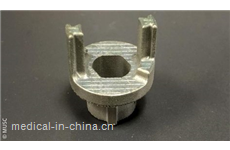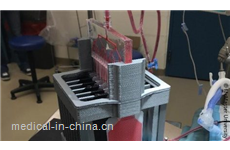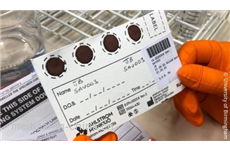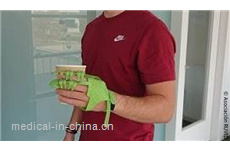
ALS early diagnosis thanks to an experimental test
A test to diagnose two very serious diseases such as ALS and FTD when the pathologies have not yet appeared, thereby providing doctors and patients with essential information tools to tackle them early and develop new treatments. A team of researchers at SISSA in association with different clinical and Italian research institutes have made a first promising step in this direction.

3D metal printer expands possibilities for innovation
When the Zucker Institute for Applied Neurosciences (ZIAN) at the Medical University of South Carolina needed to bring to life a neurosurgeon's idea for better instrumentation for sacroiliac surgery, there was one obvious partner to turn to: the MUSC College of Dental Medicine.

Artificial lung to support pre-term babies in distress
An international team led by current and former McMaster University researchers has developed an artificial lung to support pre-term and other newborn babies in respiratory distress. The group has proven the concept using a live piglet, a major step along the route toward approval for use in humans, where the portable device could save many lives and prevent catastrophic damage by taking up some of the placenta’s role in oxygenating the blood until babies are able to breathe independently.

COVID-19: dried blood spot sampling
Using dried blood spot samples (DBS) is an accurate alternative to venous blood in detecting SARS-CoV-2 antibody tests, a new study by immunology experts at the University of Birmingham has found.

Handheld robotic exoskeleton to improve hand mobility problems
The Engineering Design and Technological Development Group (DIDET), from the University of AlicanteArtefactosLAB, has once again taken a step forward in terms of social innovation with the design of a new handheld robotic exoskeleton. Named [flick], this robotic exoskeleton improves the lives of people with limited or no ability to move due to neurological and/or physiological disorders.